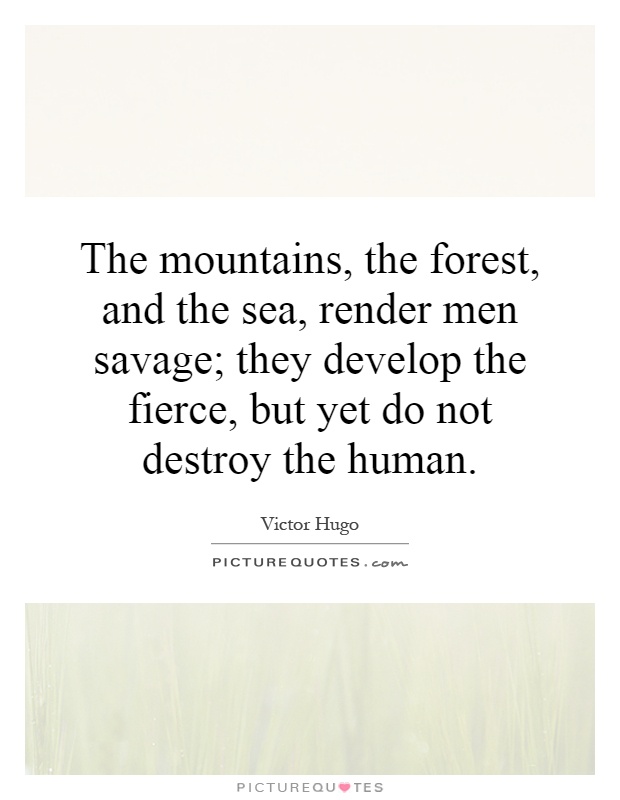The mountains, the forest, and the sea, render men savage; they develop the fierce, but yet do not destroy the human

The mountains, the forest, and the sea, render men savage; they develop the fierce, but yet do not destroy the human
Victor Hugo, the renowned French writer, poet, and playwright, was known for his deep appreciation of nature and its profound impact on the human spirit. In his works, Hugo often explored the duality of nature - its ability to both nurture and challenge the human soul. One of his most famous quotes, "The mountains, the forest, and the sea, render men savage; they develop the fierce, but yet do not destroy the human," encapsulates this theme perfectly.Hugo believed that the raw, untamed beauty of the mountains, the forest, and the sea had the power to awaken primal instincts within individuals. The rugged terrain of the mountains, the dense, mysterious depths of the forest, and the vast, unpredictable expanse of the sea all served as reminders of the harsh realities of life. In these environments, men were forced to confront their own vulnerability and mortality, leading them to tap into their most primal instincts in order to survive.
However, Hugo also believed that despite the savage nature of these environments, they did not completely strip away the humanity of individuals. Instead, they served as a crucible through which individuals could forge a deeper connection with their own humanity. The challenges and hardships faced in the mountains, the forest, and the sea forced individuals to dig deep within themselves, to find strength, resilience, and compassion in the face of adversity.












 Friendship Quotes
Friendship Quotes Love Quotes
Love Quotes Life Quotes
Life Quotes Funny Quotes
Funny Quotes Motivational Quotes
Motivational Quotes Inspirational Quotes
Inspirational Quotes